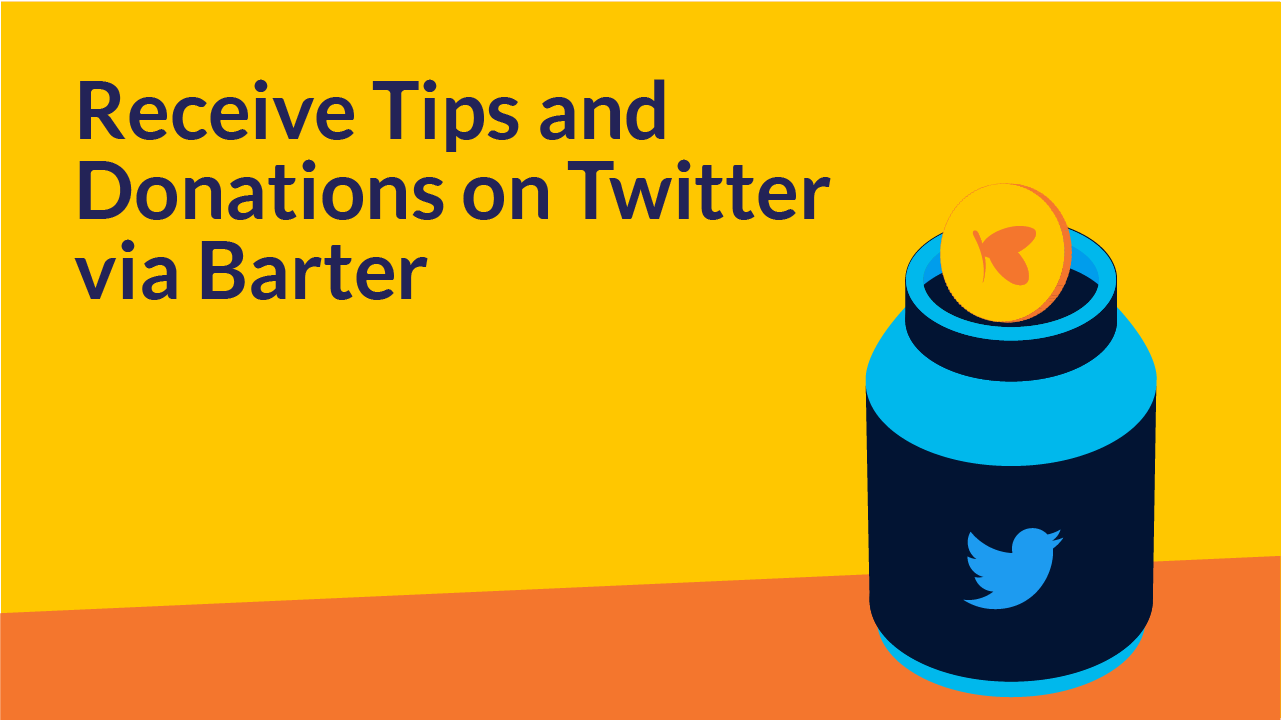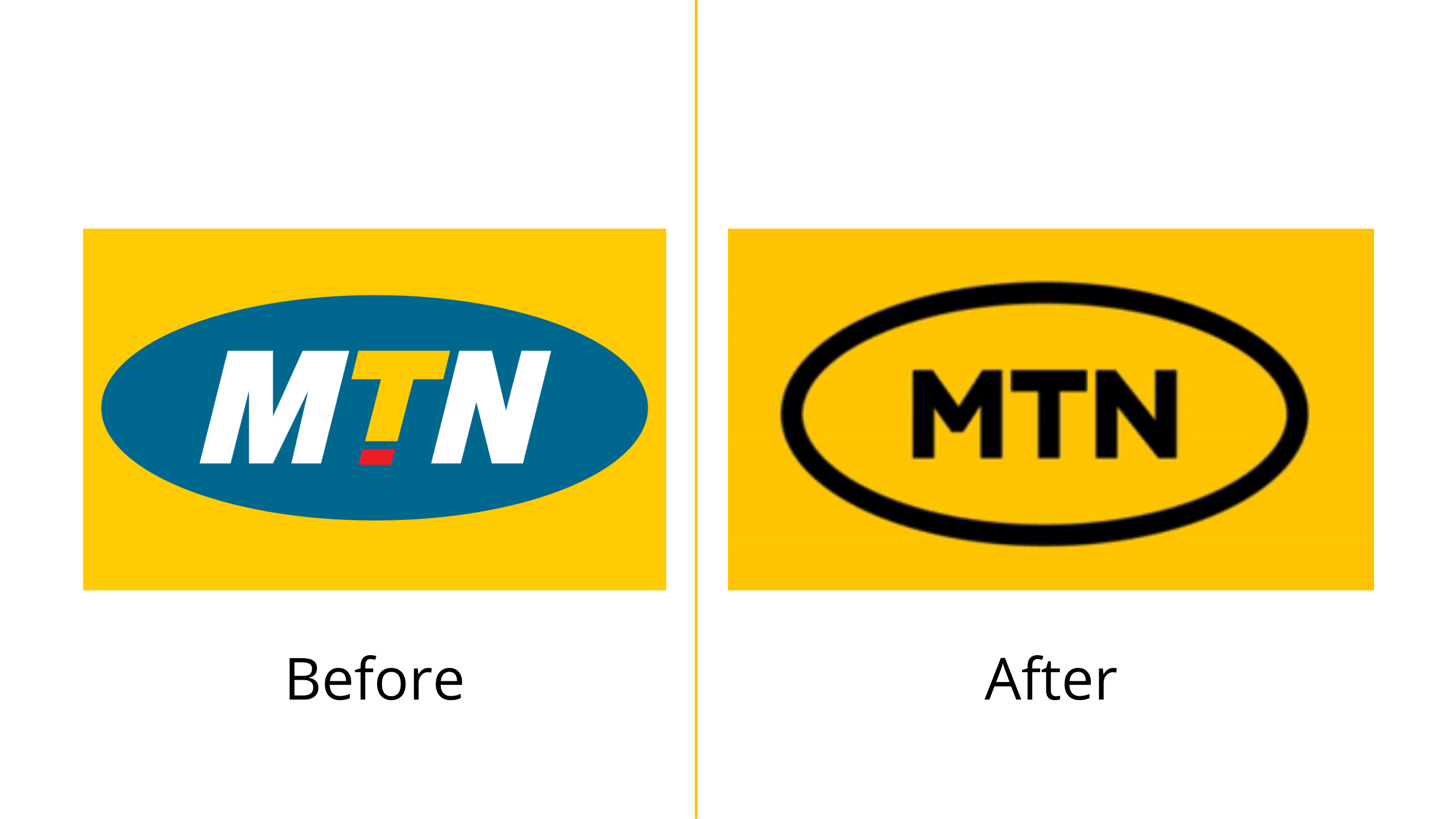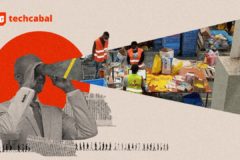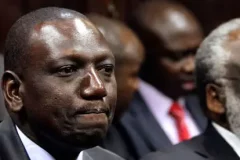
IN PARTNERSHIP WITH

Monday’s here again 😭
And Twitter is still not giving us an edit button.
The platform, however, recently rolled out a new feature that lets users pin up to 6 chats in their DMs.
This feature was previously available to Twitter Blue subscribers but now, everyone can access it on iOS and Android.
Looks like Twitter is proving that patience brings peace and if we wait long enough, everything Blue good will come to us, even an edit feature. 💪🏽

In today’s edition
- Flutterwave’s new look
- It’s not a game
- AliExpress and WeChat join the Notorious Markets Lists
- TC Insights:
- Job opportunities
FLUTTERWAVE’S NEW LOOK

Looks like everyone is rebranding. Last week, the continent’s biggest telecoms operator, MTN, announced a brand refresh that came with a logo change. Now, the continent’s most valuable startup has followed suit.
Two days after it announced the close of a $250 million Series D round, Flutterwave showcased a rebrand.
On Friday, at a virtual event themed “Flutterwave 3.0”, the startup presented the rebrand of its logo and dashboard, as well as the addition of small business lending, fintech-as-a-service (FaaS), and more to its suite of offerings.
What’s included in Flutterwave 3.0?

First, there’s the logo change that cuts across all of Flutterwave’s platforms.
There’s also Flutterwave Capital, a loan service for SMEs which will enable businesses “easily access loans without collateral, cumbersome documentation, and other stringent terms and conditions” within 2 working days. This service is only available in Nigeria presently but Flutterwave has announced plans to launch in South Africa and Kenya soon.
The fintech is also opening up its infrastructure to allow other companies to use its APIs to embed financial capabilities into their existing applications, products, and services. Flutterwave’s FaaS service provides a unified tech stack that includes KYC, account opening, debit card issuance, payments, and real-time transfers through a single endpoint, account servicing, and compliance.
Finally, Flutterwave has added both Google Pay and Apple Pay to its payments option, and will now issue physical and virtual dollar and naira cards.
Yet to get paid for your hilarious tweets?
Simply add Barter to your Twitter profile and start accepting tips and donations from your followers.
Learn how to set up Barter for Tips.
This is partner content.
IT’S NOT A GAME

How good are you at playing games? Do you think some of your sniping, crafting, or spectating skills and actions are transferable?
Well, the Russian government certainly thinks so and it recently sentenced a teenager to 5 years in prison because of it.
What’s Russia’s game?
A 16-year-old boy named Nikita Uvarov was recently sentenced for allegedly planning to blow up a virtual building of the FSB—Russia’s Federal Security Service—which he created in the popular block-building game Minecraft.
According to a civil rights lawyer, Pavel Chikov, Ukarov was sentenced to five years in prison by a Siberian military court for “training for terrorist activities”.
The teenager had been arrested with two other defendants in 2020 after they were caught sharing handbills in support of Azat Miftakhov, an anarchist activist who was arrested and subsequently sentenced for vandalism. After the arrest, officials went through the teenagers’ phones and found conversations where they planned to blow up a replica of an FSB building they created in Minecraft. The authorities also found that the trio had plans to learn bomb-making and practice on abandoned buildings.
While Ukarov was sentenced to prison, the other two were given lesser charges because they cooperated with the authorities.
Is it a crime if they were just planning?
In a lot of countries, it is. Ideation, is, after all, the first step to execution. In Nigerian law, for example, two or more people who are caught planning to execute unlawful acts will receive the same punishment meted out to those who commit the offence.
While nations are developing their laws to catch up to the different ways the metaverse will play in criminal activity, mens rea or “the guilty mind” has always been the deciding factor for criminal activities. For example, charges of murder can be reduced or abated to lesser charges when accused persons defend their actions with involuntariness.
As the metaverse permeates facets of reality, it will become important for countries to define which non-physical actions in the metaverse consist of crimes that could have damaging real-life consequences, and which don’t. For example, Meta was recently forced to add 2-foot personal boundaries to virtual avatars of Horizon users after complaints of groping and assault in the metaverse. Many countries don’t have enforceable laws that deal with these issues yet so there’s a need for innovation.
What more lies in wait for law and the metaverse?
At Busha, we want everyone everywhere in Nigeria to have access to crypto. That’s why you can buy as low as ₦250, set recurring buys, get the best rates, and soon 🤐 on Busha. Join 300,000+ Nigerians already using Busha.
This is partner content.
ALIEXPRESS AND WECHAT JOIN US’ NOTORIOUS MARKET LIST

In 2006, the United States Trade Representative Office (USTR) released the first Notorious Market List, a compilation of businesses, websites and physical markets that commit “commercial-scale copyright piracy and trademark counterfeiting” that is risky to consumer safety.
Basically, USTR’s list comprises marketplaces, physical or virtual, that sell or facilitate the sale of fake products from phones to wearables.
Last week, two of China’s most significant marketplaces, AliExpress and WeChat were added to the list. According to the USTR, both platforms have seen an increase in counterfeit products in the past year.
How does counterfeiting hurt?
For one, it hurts the consumers, especially optimistic ones who buy $700 phones for half the price on AliExpress because they were on sale, only to have the devices fail weeks later.💀
It also hurts the corporations and small businesses who own the copyrights and patents to the products. In 2019, an estimated $470 billion was lost to counterfeiting globally.
And we probably don’t need to highlight the health concerns for counterfeit consumables or even wearables made with poor materials.
Since 2006, the USTR has been tracking markets that promote this illegal activity. The list presently includes 42 online markets—including RapidGator, LibGen and Baidu WangPan—and 35 physical locations across 18 countries.
The list is published to increase public awareness of the platforms and their ills, a Buyer’s Beware compilation that pushes companies to fight piracy on their platforms.
Not everyone is happy
China has pushed back on the USTR’s latest release and understandably so. Of the 42 online platforms, 6 are Chinese-owned platforms, and 9 of the 35 locations are in China.
According to the Ministry of Commerce in Beijing, “China does not recognise the conclusion of the report and we sternly oppose the irresponsible actions by the US.” The Ministry also accused the US of double standards, stating that it was using the USTR’s list to divert attention from the counterfeiting that’s already prominent in the US.
Fincra provides APIs for making and receiving local & international transfers in EUR, GBP & NGN.
Our APIs fit into all payment applications allowing fintechs to offer virtual bank accounts in multiple currencies.
Sign up for a demo here.
This is partner content.
TC INSIGHTS: DATA CENTRES TO POWER THE FUTURE
Thabo owns two businesses that operate out of Johannesburg and Harare. Between both companies, millions of files are created daily. To ensure their safety from cyber attacks and easy retrieval for business processes, he is building two data centres in both cities.
Data centres are crucial to the functioning of the internet and have become more important with the vast amount of information that needs to be stored.
Currently, Africa lags behind other continents in terms of data centre infrastructure. Despite being home to 17% of the global population, Africa hosts just 2% of all the colocation data centres globally. Although there has been increasing investment in data centres across Africa, they are concentrated in just a few countries and can barely serve the entire continent.
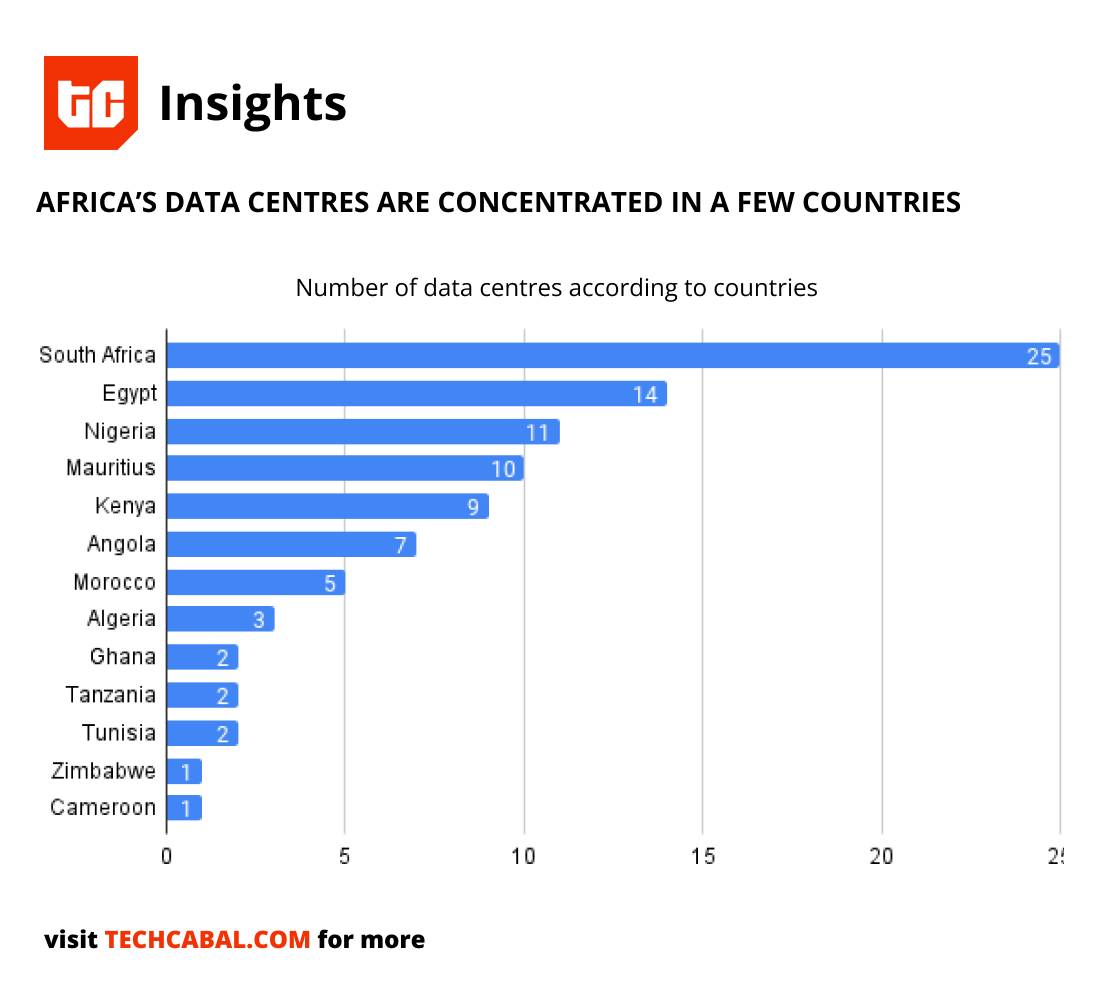
Last year, Africa witnessed two major investments in data centres including the $320 million acquisition of MainOne by Equinix, and the $200million raised by WIOCC(West Indian Ocean Cable Company). There has also been an increase in data centre capacity expansion recently across the continent.
Yet the continent is in need of more data centres to support the expansion of internet connectivity and the digital economy. Compared to a region like the Middle East that has 0.7 data centres per million internet users, Africa has 0.1 data centres per million internet users. To reach the global average of 0.9 data centres per million internet users in the world, Africa will need about 450 more data centres.
Several factors that influence the citing of data centres include security, access to skills, and the local electricity situation. “Asides the huge initial investment, the kind of expertise and level of sophistication needed to run it is quite high,” Jameel Abdullahi, a cyber specialist said in a chat with TechCabal.
Foreign companies are able to bear this burden when compared to local entrepreneurs. “There is a lot to be gained from foreign companies that site data centres here. “Local data residency is important. It is also important not to overregulate and stifle innovation”, he added.
The ripple effect of these decisions will enable more young Africans like Thabo to build data centres to power the continent’s digital economy.
You can download all our reports here and watch videos from our events. Send your custom research requests here.
JOB OPPORTUNITIES
- TechCabal – Junior Newsletter Writer, Senior Editor – Africa (Remote)
- uLesson – Business Development Representative – Abuja, Nigeria
- Binance – Business Development Manager, Growth Marketer – Africa (Remote)
- Future Africa – Strategy Associate, Market Research Analyst – Lagos, Nigeria
- M-KOPA – Commercial Product Manager, Marketing Manager – Nairobi, Kenya
There are more job opportunities here. If you’ve got any job listings, send them in to TC’s Job Board.
What else we’re reading
- A South African developer has launched Wortel—Wordle in Afrikaans.
- Morocco-based logistics startup Freterium raises $4 million.
- How many YouTubers in South Africa have over 1 million subscribers?
- A burning cargo ship full of Porsches is adrift in the mid-Atlantic.







